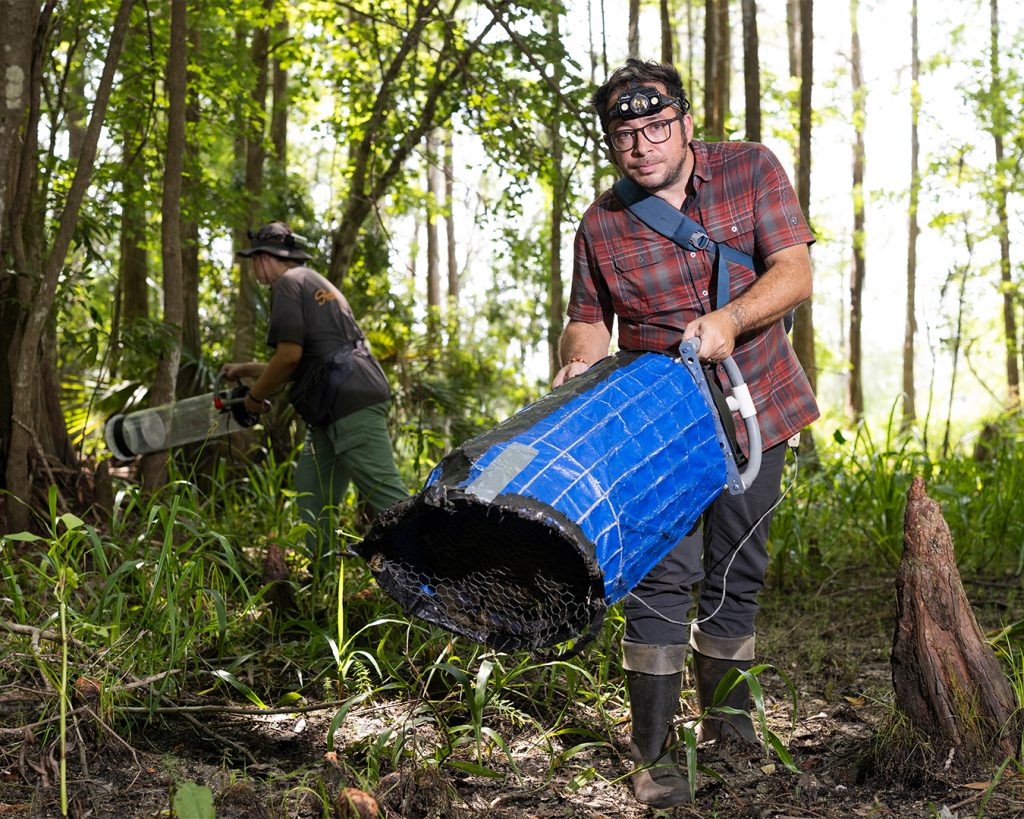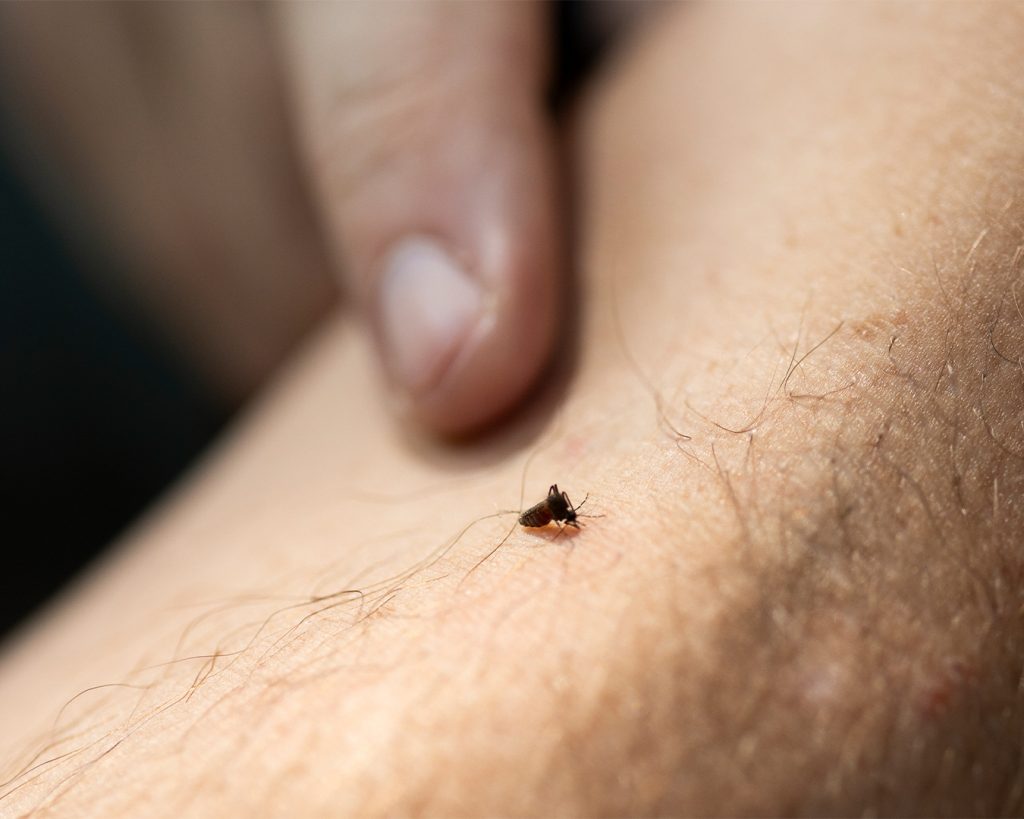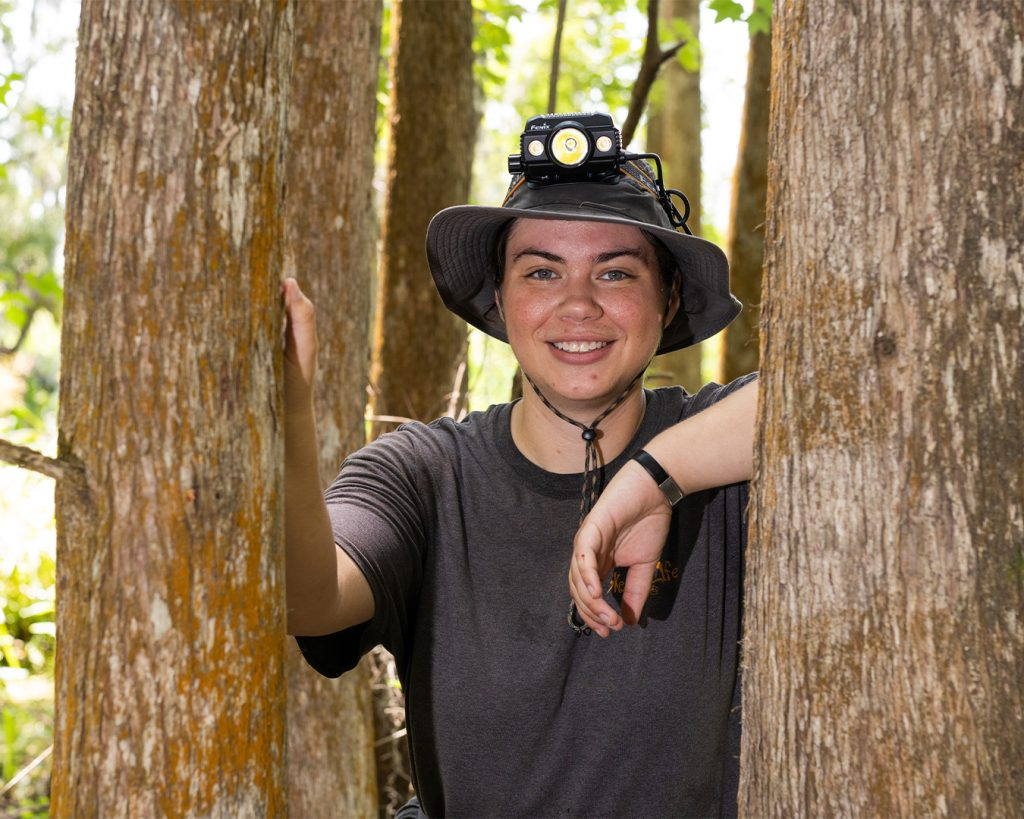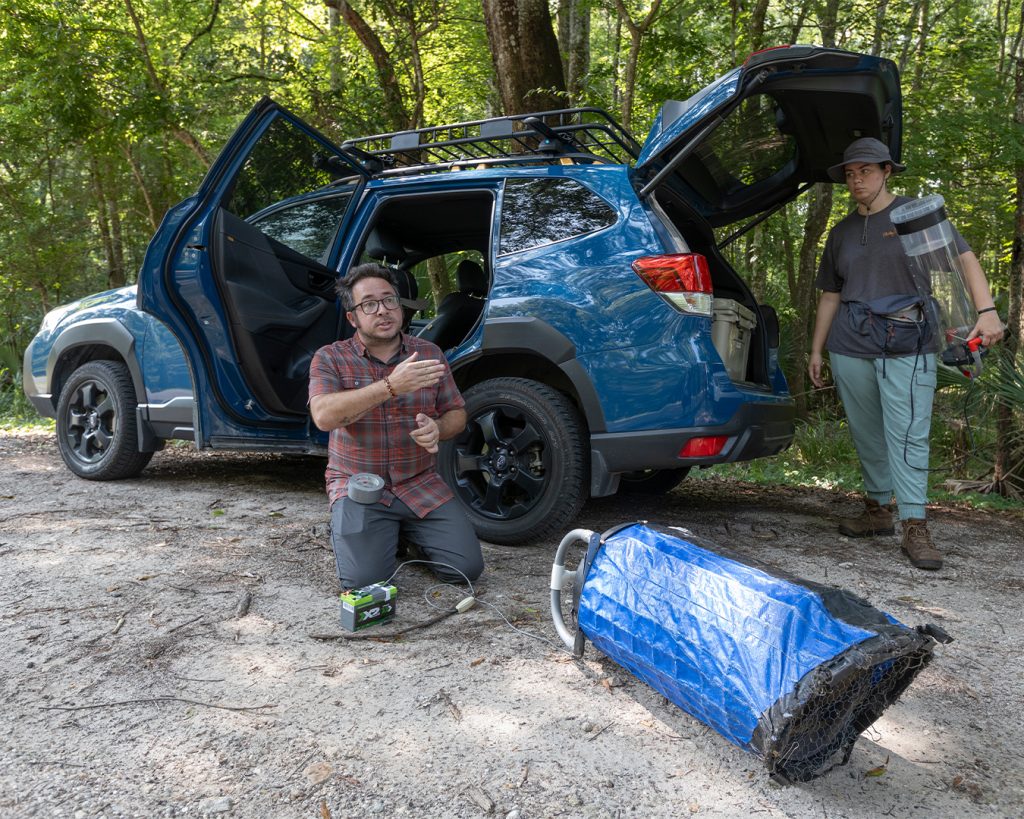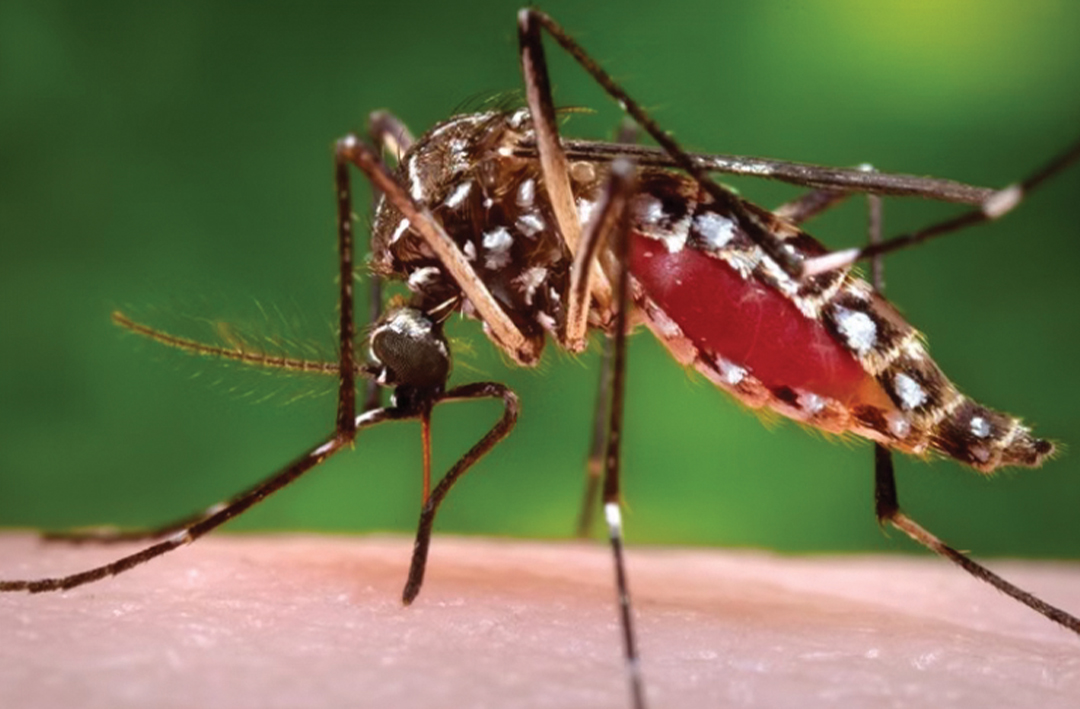Daniel Swale studies the world’s deadliest animal.
“Mosquitoes are a nuisance to us but, in other parts of the world, it’s a life-or-death issue,” he says.
Swale is one of UF’s “mosquito hunters” — researchers who study ways to track and combat the insects. While not part of a formal team, they’re united by a shared insect interest: Swale, an associate professor of insect toxicology and physiology, focuses on developing new insecticides and techniques that kill mosquitoes or prevent them from feeding and spreading diseases. Medical geographer Sadie Ryan tracks the patterns of mosquito-borne diseases across countries and continents. Entomologist Lawrence Reeves combs Florida’s swamps in search of new species.
In late 2024, Swale earned a $2.3 million grant from the Bill & Melinda Gates Foundation to study ways to control the malaria mosquito. With chronically high levels of insecticide resistance among mosquitoes, Swale is using an innovative method to speed up the discovery and development of new ingredients to kill them.
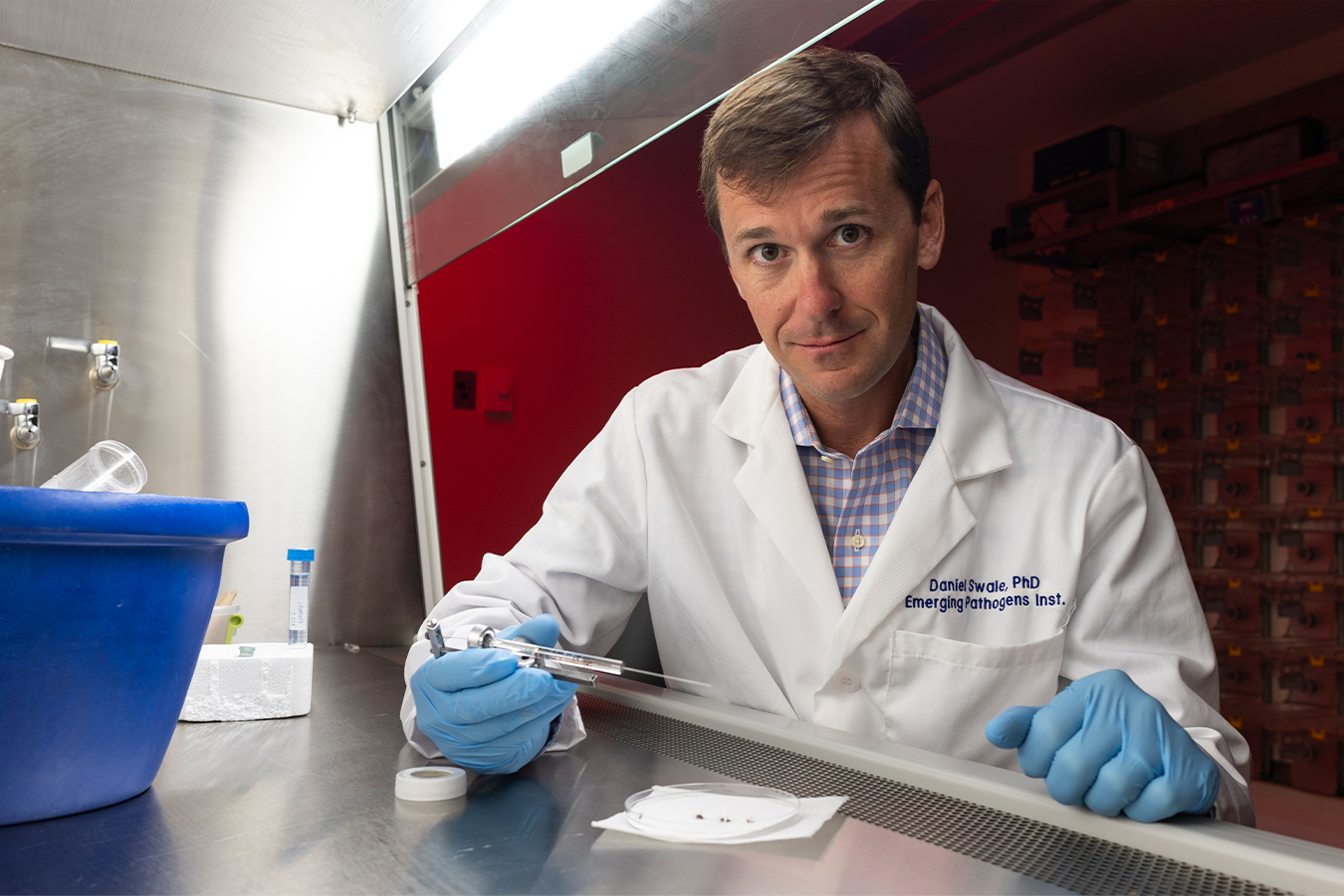
Daniel Swale
– Daniel Swale, Associate professor of insect toxicology and physiology
“The work funded by the Gates Foundation will likely lead to the discovery of new insecticides that can be incorporated into the pipeline for development and hopefully be used in Sub-Saharan Africa to reduce the malaria burden,”
In addition, altering the function of the mosquito immune system is one way to make viruses less prolific in mosquitoes, Swale says. One of his long-term tasks is better understanding how to make that happen, including studying how drugs can reduce the genetic activity of the virus that causes dengue fever in humans.
“The mosquito often doesn’t get infected or the infection rate is below the threshold for being transmissible,” Swale says.
Like humans, mosquitoes have multiple ways of fighting off viruses. Somehow, Swale says, activating unique systems within the mosquito can produce an enhanced antiviral immune response and prevent it from being infected with Dengue virus.
Swale’s other mosquito research includes Center for Disease Control funding to develop new mosquitocides and repellents, with a focus on discovering useful chemicals from the natural world. Additionally, a $1.9 million National Institutes of Health grant aims to better understand how bacteria change the feeding behavior and biology of arthropods, allowing diseases to spread more easily.
“Once we understand how this happens, we can develop approaches to prevent pathogen transmission from arthropods to humans,” he says.
Ryan’s work helps the world anticipate how malaria, dengue fever and the Zika virus spread with population and climate changes.
Ryan tracks mosquito movements that shift with climate patterns and there’s no shortage of work: Many regions of the U.S. are seeing longer mosquito seasons due to warmer temperatures. Worldwide, mosquito-borne diseases result in more than 1 million deaths annually, according to the American Mosquito Control Association.
In 2024, Ryan and her collaborators found that climate change is driving a shift in Anopheles stephensi, a mosquito that transmits malaria. Known as a disease driver in the Middle East and India, the mosquito was found to have spread to parts of Africa. Their work was the first of its kind to use mapped-temperature models for current mosquito-borne disease risks posed by Anopheles stephensi. That allows scientists and policymakers to compare risks for malaria and other diseases using climate and geographic variables.
Ryan is funded by a trio of National Institutes of Health projects as well as grants from the NIH, the Centers for Disease Control and the Wellcome Trust.
Reeves’ work takes him to the front lines of mosquito hunting, tromping through swamps and along river banks in search of newly arrived species. In the lab, he catalogs types of mosquitoes and their range — information that is crucial to the state’s 63 mosquito control districts. By analyzing the DNA in mosquito blood meals, Reeves also sheds new light on how pathogens move through the environment and potentially affect humans.
In 2023, Reeves and his collaborators found that a new mosquito species, Culex lactator, had established a permanent presence in three Florida counties.
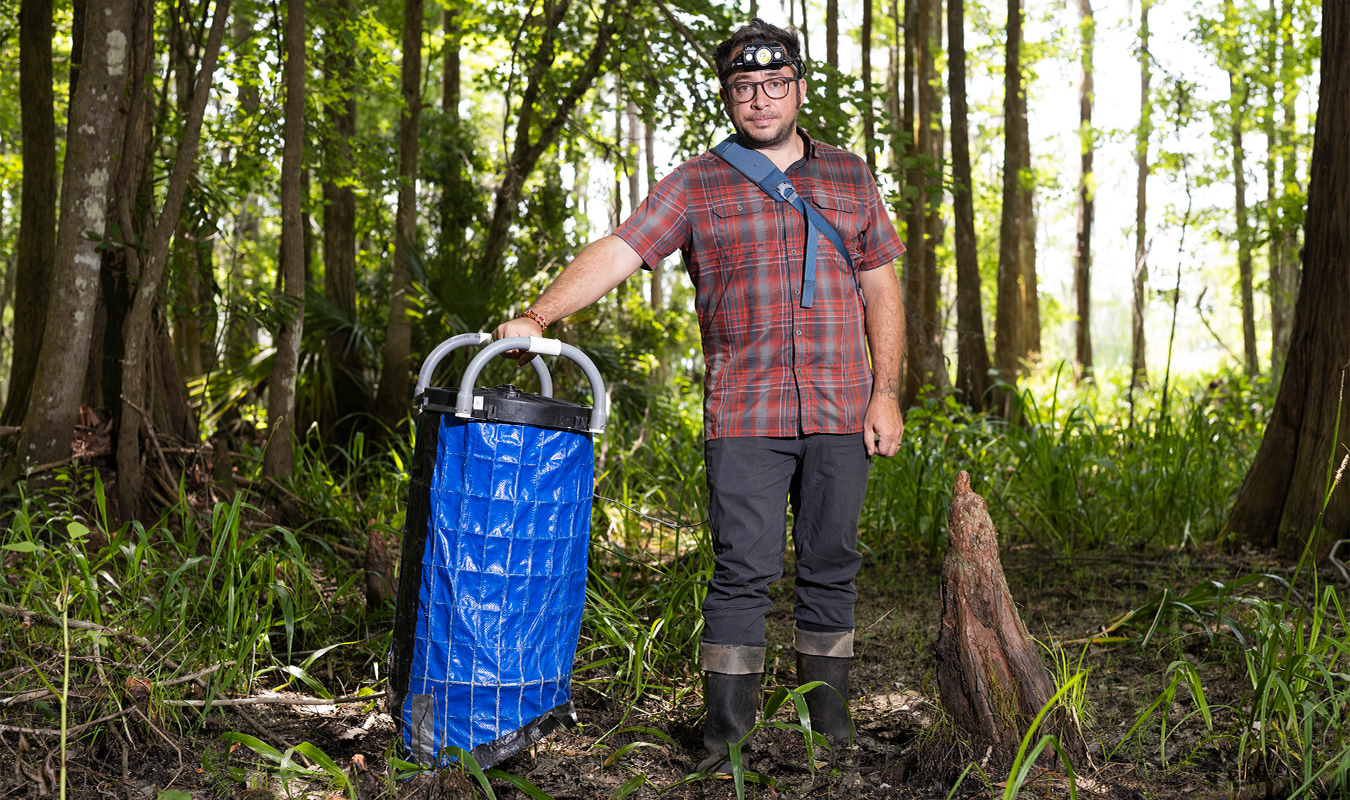
Lawrence Reeves
